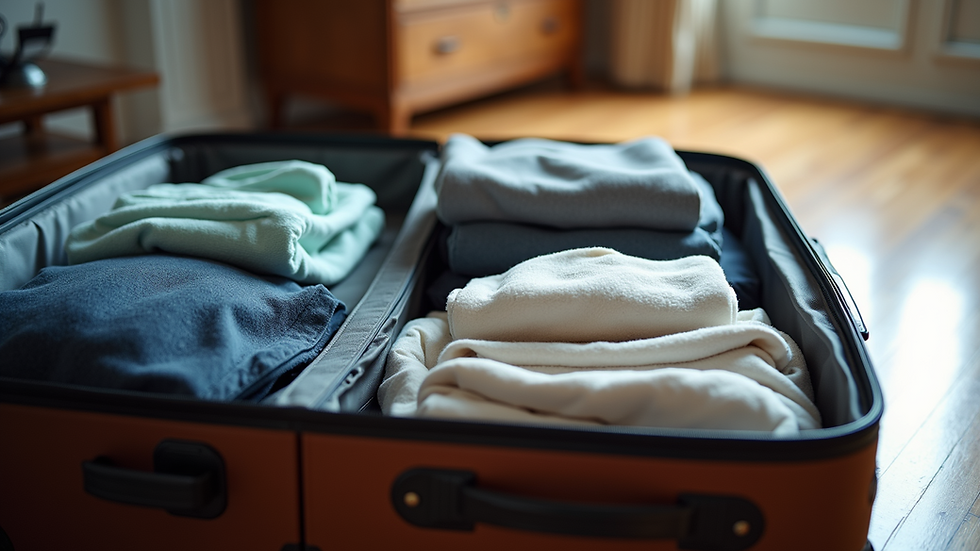- Dec 14, 2025
- 4 min read
Traveling is more than just ticking off famous landmarks from a list. It’s about diving into the unexpected, the quiet corners where stories whisper and the soul feels alive. Have you ever felt the thrill of uncovering a place that few know about? Those moments when you stumble upon a secret beach, a tucked-away village, or a serene mountain trail? That’s the magic of unknown travel destinations. Today, I want to take you on a journey to explore some of these hidden treasures that will ignite your wanderlust and inspire your next adventure.
Why Choose Unknown Travel Destinations?
There’s something deeply satisfying about stepping off the beaten path. Unknown travel destinations offer a unique blend of peace, authenticity, and discovery. Unlike crowded tourist spots, these places invite you to slow down and connect with the environment and locals on a more personal level.
Imagine wandering through a quiet cobblestone street where the scent of fresh bread fills the air, or hiking a trail where the only sounds are birdsong and rustling leaves. These experiences are priceless. Plus, traveling to lesser-known spots often means fewer crowds, better prices, and a chance to support local communities directly.
If you’re tired of the usual tourist traps and crave something different, unknown travel destinations are your ticket to a richer, more meaningful journey.

Top Unknown Travel Destinations to Add to Your Bucket List
Let’s dive into some incredible places that deserve a spot on your travel radar. These destinations are not just beautiful; they offer stories, culture, and experiences that will stay with you long after you leave.
1. The Enchanting Isle of Eigg, Scotland
Nestled in the Inner Hebrides, the Isle of Eigg is a small island with a big heart. It’s a place where nature reigns supreme - from dramatic cliffs to sandy beaches and lush forests. What makes Eigg special is its community spirit. The island is owned by its residents, who have worked hard to create a sustainable and welcoming environment.
Hiking here is a dream. The An Sgurr ridge offers panoramic views that feel like a reward for your effort. And when the sun sets, the sky lights up with stars like you’ve never seen before.
2. The Vibrant Streets of Valparaíso, Chile
Valparaíso is a kaleidoscope of colors and creativity. This port city is famous for its steep hills covered in vibrant murals and quirky street art. Walking through its labyrinthine streets feels like stepping into an open-air gallery.
Don’t miss the funicular rides that offer stunning views of the bay. The city’s bohemian vibe is infectious, with cozy cafes, lively music, and a strong sense of community. It’s a place where every corner tells a story.

3. The Serene Lakes of Plitvice, Croatia
While Croatia’s coastline is well-known, the Plitvice Lakes National Park remains a hidden gem for many. This UNESCO World Heritage site is a network of 16 terraced lakes, connected by waterfalls and surrounded by lush forests.
Walking the wooden pathways feels like entering a fairy tale. The turquoise waters shimmer under the sunlight, and the sound of cascading water creates a soothing soundtrack. It’s a perfect spot for nature lovers and photographers alike.
4. The Mystical Village of Chefchaouen, Morocco
Chefchaouen is famous for its blue-painted streets and buildings, creating a dreamlike atmosphere. Nestled in the Rif Mountains, this village offers a peaceful retreat from the hustle and bustle of Moroccan cities.
Wandering through its narrow alleys, you’ll find charming shops selling handmade crafts and spices. The local cuisine is a delight, with flavors that tell stories of tradition and culture. Don’t forget to hike up to the Spanish Mosque for a breathtaking view of the town bathed in blue.
How to Find and Experience Hidden Travel Gems
Finding these secret spots isn’t always easy, but the journey is part of the fun. Here are some tips to help you uncover your own hidden travel gems:
Research Beyond the Guidebooks: Look for travel blogs, forums, and local websites. Sometimes the best advice comes from fellow travelers who have been there.
Talk to Locals: When you arrive, ask residents about their favorite places. Locals often know the best spots that aren’t on any map.
Be Open to Spontaneity: Some of the best discoveries happen when you wander without a strict plan. Allow yourself to get lost and explore.
Use Social Media Wisely: Platforms like Instagram can be great for finding beautiful, lesser-known places. Search hashtags related to your destination.
Respect the Environment and Culture: When visiting hidden gems, always be mindful of your impact. Preserve the natural beauty and respect local customs.
Why I Keep Coming Back to Unknown Travel Destinations
Every time I travel, I seek out those quiet corners that feel untouched by time. There’s a profound joy in discovering a place that feels like it’s just for you. It’s like finding a secret garden in a world full of noise.
These unknown travel destinations have taught me patience, curiosity, and humility. They remind me that the world is vast and full of wonders waiting to be explored. And the best part? You don’t have to be a seasoned traveler to find them. Sometimes, all it takes is a little courage to step off the beaten path.
If you’re ready to start your own adventure, check out this collection of hidden travel gems that might just inspire your next trip.

Your Next Adventure Awaits
So, what’s stopping you? The world is full of unknown travel destinations just waiting to be explored. Whether it’s a remote island, a colorful city, or a peaceful national park, these places offer more than just sights, they offer experiences that touch your heart.
Pack your bags, open your mind, and get ready to discover the magic that lies beyond the usual. Your next unforgettable journey is just around the corner..










